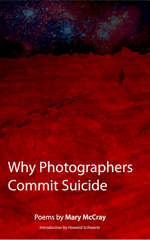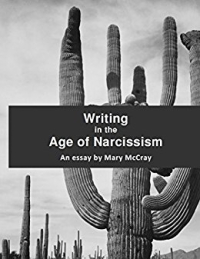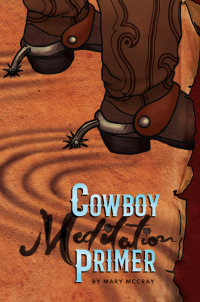 Although I didn't love this book, it was an interesting project edited by Alan Michael Parker: twenty-two poets were asked to invent a purely fictitious poet and pretend to do a translation of that poet, including an introduction with a life story and why they appealed and a sample poem or two. The editor wanted to explore issues of narrative and translation, to call "into question the axioms of translation and the use of fiction-in-poetry, the work that…allows the contributors to slip between speaker, self and other."
Although I didn't love this book, it was an interesting project edited by Alan Michael Parker: twenty-two poets were asked to invent a purely fictitious poet and pretend to do a translation of that poet, including an introduction with a life story and why they appealed and a sample poem or two. The editor wanted to explore issues of narrative and translation, to call "into question the axioms of translation and the use of fiction-in-poetry, the work that…allows the contributors to slip between speaker, self and other."
Many of the poets conjured up their ideal (or so it seemed) poet, one of a choice between progressive-woman-before-her-time, political radical, resistance fighter, suppressed refugee, or one of the exploited or insane.
My issue with the result was boredom. If you go to poetry to get inside a living person's idea of themselves or their processing of an experience, or to understand a foreign experience…this might leave you cold, too. It sort of proves how we come to fiction and poetry with different needs. Also, it proves how hard it is to get away from your own voice: "Readers familiar with the poems of any of these writers will surely find affinities between their self-signed work and the work of their imagined poets; perhaps it is…true that no matter what we do, we cannot run from ourselves."
I'm pretty sure the poets were trying real hard to escape themselves, too. And then there was the problem of invention: were these poets really all that good at it? A few fictions were hilarious, rarely did they become profound, but mostly they just felt like practicings.
In some cases, pertinent points about translations arose: Laure-Anne Bosselaar talked about how literal to go, preserving the stanza form or rhyme scheme or syllabic count and maintaining the poem's tone. And she showed multiple attempts. Martha Collins talked about the problem of translating emotion, linguistic accidents of meanings over two languages, and how the monosyllabic Vietnamese language "has much less connective tissue than European languages." Judith Hall talked about wimpy translator "mea-culpa" concessions about translation failures but then herself concedes that there is no perfect translation of poetry. Translations metamorphize in keeping, hopefully, with an original spirit. But then she dismisses the "translator's dilemma" to "secondary and debatable scholarship. What the reader wants to remember is not a process but a poem."
Well, that depends upon the reader.
I loved Maxine Kumin's poem "Inge, in Rehab." She talked about voice and the work of enjambments and slang. Overall, I loved the fictions best of Mark Strand and Annie Finch. And I liked Eleanor Wilner's poem "Pandora Novak."
Soon after reading this book, I dug out an old Poetry Magazine issue I had not read, "The Translation Issue" from April 2008. This was my first reading of Poetry and I loved the format of reading a poem or two and then reading the translator's note on it. You never see the original poems.
David Harsent translates Greek poet Yannis Ritsos and talks about translations being not another version but a re-imagining and how Ritsos poems are "indelibly Greek."
Stephen Edgar translates Russian Anna Akhmatova and talks about the difficulty of forms and rhyme schemes that, when kept, can distort sense. He wonders what should be sacrificed. "A poem is about many things and the literal sense is only one of them." Meaning might only be a hanger for rhetorical or musical features. He feels some poets, like Akhmatova, lose most of their magic in their translations. He says he first does a literal translations and "them begin[s] the remoulding."
Michael Sells translates Arabic poet Ibn Al-Arabi and talks about playing syntax against line breaks to recreate rhythmic play of syntax against meter. I'm not sure what he means.
Peter Cole translates Hebrew poet Natan Zach and says, "A Zach poem…is both a thing in itself and a demonstration of what makes it that thing…therein lies the challenge of translation–accounting for that aural intelligence as it moves along the lines."
Don Paterson translates Cesar Vellejo and says most "faithful" translated versions are "mere hommage; they really belong to a category of meta-poem."
Finally, this week I finished my new issue of American Poetry Review. I really liked the Cynthia Cruz poems. She teaches at Sarah Lawrence so I find it very ironic that she capitalizes every line of her poems, when everyone in Kate Johnson's class there in 1995 really came down on me hard for being an impossibly outdated conceit. Arielle Greenberg finishes her essay series on the differences between second and third-wave feminist female poets (highly recommended). Tony Hoagland's new poems take on language poetry (is this a lengthy bitch fight between lyricists and language poets?).
In any case, the essay by John Felstiner about translating a near-death Neruda is interesting here in that he talks about how his translated lines "strangely seem like my own creation, speaking not only through me but for me" and he calls this a "foolish kind of occupational hazard." He says, "What's worse, if I turn back to Neruda's Spanish it seems an uncannily good translation of my own poem!"
Translations are so interesting.














